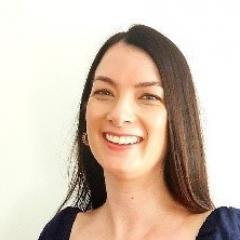About the Network
QEDIN-CP (Queensland Early Detection and Intervention Network – for children at risk of Cerebral Palsy) consists of health professionals who have a special interest and training in the identification and care of infants who may be at risk of having cerebral palsy (CP). The ultimate vision of QEDIN-CP is to improve the health and wellbeing of children with CP and their families through early detection and provision of early intervention. QEDIN-CP forms part of the framework for the AQIP research program (funded by the QLD State Government) aimed at earlier detection and early intervention for children who are at high risk of cerebral palsy.
Cerebral palsy most often impacts movement and posture and it can affect children in many different ways. QEDIN-CP aims to assist treating clinicians in confirming whether a child is at high risk of CP or not.
Our Vision:
To improve the health and wellbeing of children with cerebral palsy and their families through early detection and early intervention.
Our Mission:
All children impacted by CP in Queensland will be identified and provided with the earliest possible diagnosis to enable best practice early intervention and fast tracking into clinical trials as part of a national strategy for CP.
QEDIN-CP’s Aims:
- To increase the early detection of infants at high risk or with CP to enable entry into interventions earlier at a time of maximum brain development.
- To provide information on support for families of infants identified early as being at high risk or of having CP.
- To increase the early diagnosis of those infants who are not currently identified as being at high risk for CP but have a medical history that indicates that they could potentially be at risk (50% of CP cases).
- To fast track infants at high risk of CP to available early intervention studies including LEAP, VISIBLE and Early Pact.
- To provide support for clinicians involved in the identification/diagnosis of infants who may have CP.
- To provide education and training on early detection and early interventions for infants at risk of CP, and the ongoing maintenance of clinical skills for early detection.
If you are a clinician and you wish to join our mailing list and to receive meeting invitations to our quarterly meetings, please click on the link below:
Register your interest in the network
Research Projects:
LEAP-CP (Learning through Everyday Activities with Parents of infants with CP) - Peer delivered early detection and intervention for infants at high risk of cerebral palsy/neurodevelopmental disability in Indigenous Australia: Learning through Everyday Activities with Parents Study (LEAP-CP)
EarlyPACT(Early: Parenting Acceptance and Commitment Therapy)
ENACT (ENvironmental enrichment for infants; parenting with Acceptance and Commitment Therapy): A randomised controlled trial of an innovative intervention for infants at risk of Autism Spectrum Disorder
ENH (The Early Natural History of CP): Understanding the early natural history of cerebral palsy – A prospective Cohort Study"
VISIBLE (Vision Intervention for Seeing Impaired Babies through Learning and Enrichment)
Useful Resources:
QEDIN Webinar:
PREMTiME Study: Early Prediction of typical outcome and mild developmental delay for prioritisation of service delivery for very preterm and very low birth weight infants - Dr Rebecca Caesar MPhty (Paediatrics) PhD
QEDIN Forms:
- QEDIN flyer (General info for clinicians or families)
- QEDIN referral form (This is the form for clinicians to complete to refer a child to QEDIN; parents must be aware they are being referred to QEDIN. Also provide parents with the QEDIN flyer and complete the Consent form with the parent – available below)
- QEDIN flyer for parents and families (This flyer needs to be given to parents prior to consent being given.)
- QEDIN Parent information and consent form for families (Clinicians/referrers need to complete this form with the parents at the time of referral)
- Cerebral Palsy Foundation
- CP Resource - a resource for people with cerebral palsy and their families
- QEDIN Health Professional Information and consent form
- Baby Moves information sheet (iPhone)
- Baby Moves information sheet (Android)
- Flowchart for screening of infants at risk of CP
Resources for clinicians:
- Video: Prechtl’s General Movement Assessment Instructions (Queensland Health)
- Hammersmith Infant Neurological Examination scoring form
- Video: Baby Moves App parent demonstration (Video will provide info on how to use the App)
- Filming a baby's General Movements at home (Parent information sheet)
- A telehealth guide for families (Parent information sheet)
- Plain language summary of early diagnosis of cerebral palsy
- Clinician resources for early detection (Novak et al., 2017 JAMA)
- Early diagnosis of cerebral palsy quick facts (Cerebral Palsy Alliance)
- GMs assessment parental fact sheet (Cerebral Palsy Alliance)
- Best practise recommendations for communicating the diagnosis of cerebral palsy
- Early diagnosis of cerebral palsy fact sheets (a wealth of outstanding fact sheets for clinicians and including parent handouts - prepared by Lynda McNamara)
- Letter template for NDIS for children with a “High-Risk of CP” diagnosis
- HINE score graphing tool (Created by Dr Sian Williams)
Intervention studies available for infants with CP or at High-risk of CP in Queensland:
Useful websites with additional resources:
- Australasian Cerebral Palsy Clinical Trials Network (NHMRC CRE)
- Interested in attending training courses, such as HINE or General Movements Courses? Register your interest at the Australasian Cerebral Palsy Clinical Trials Network. Find out more about our network of HINE trainers across Australia and New Zealand
- Official website for the HINE and HNNE assessments - www.hammersmith-neuro-exam.com
- Official website for the General Movements Trust - http://general-movements-trust.info/
- Cerebral Palsy Alliance - https://www.cerebralpalsy.org.au/
- Cerebral Palsy Foundation - https://www.yourcpf.org/
- CP Resource - a resource for people with cerebral palsy and their families - https://cpresource.org/
- Cerebral Palsy register - http://www.qcpr.org.au/; Information sheet; first contact card
Contact
QEDIN-CP Clinical Co-ordinator: Dr Carly Luke
QEDINC CP UQ Chief Investigator: Professor Roslyn Boyd
Queensland Cerebral Palsy and Rehabilitation Research Centre, The University of Queensland.
T: 3069 7365
All Investigators listed by Site or Hospital and Health Service (HHS):
| The University of Queensland: | Prof Roslyn Boyd, Dr Carly Luke |
| Mater Misericordiae Limited, Brisbane: | Dr Elizabeth Hurrion, A/Prof Luke Jardine, Ms Mandy Proctor |
| Cairns and Hinterland HHS: | Ms Lynda McNamara, Dr Neil Archer, Dr Marnie Fraser |
Central Queensland HHS: | Dr Cheriya Abdulla |
Central West HHS: | Dr Clare Walker |
Children's Health Queensland HHS: | Dr Priya Edwards, Dr Nicola Previteria, Ms Lisa Findlay |
Darling Downs HHS: | Dr John Coghlan |
Gold Coast HHS: | Dr Peter Schmidt, Mr Vincent Van Dijk |
Mackay HHS: | Dr Jacinta Tobin, Ms Melanee Sunnerdale |
Metro North HHS:
| Prof Paul Colditz, Dr Pieter Koorts |
Metro South HHS:
| Dr Jan Cullen |
North West HHS: | Dr Roelof Lourens |
South West HHS: | Dr Alan Richardson |
Sunshine Coast HHS: | Dr Lizelle Weber, DrRebecca Caesar |
Torres and Cape HHS: | Dr Anthony Brown |
Townsville HHS: | Dr Margot Bosanquet, Ms Anya Gordon |
West Moreton HHS: | Dr John Gavranich |
Wide Bay HHS: | Dr Clever Banda |
Dr Jurgen Fripp, Dr Kerstin Pannek, Dr Alex Pagnozzi (CSIRO), A/Prof Anthony Smith (Centre for Online Health). | |
This project is funded by the Advancing Queensland Innovation Program.



